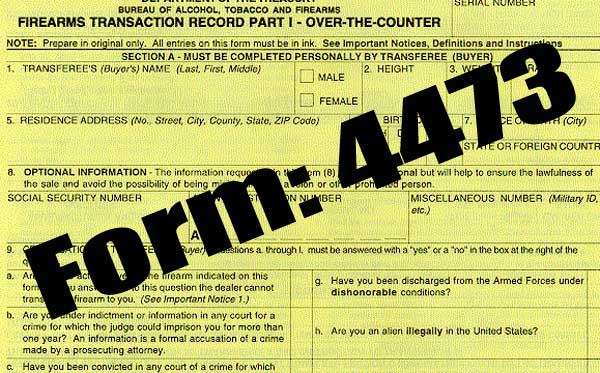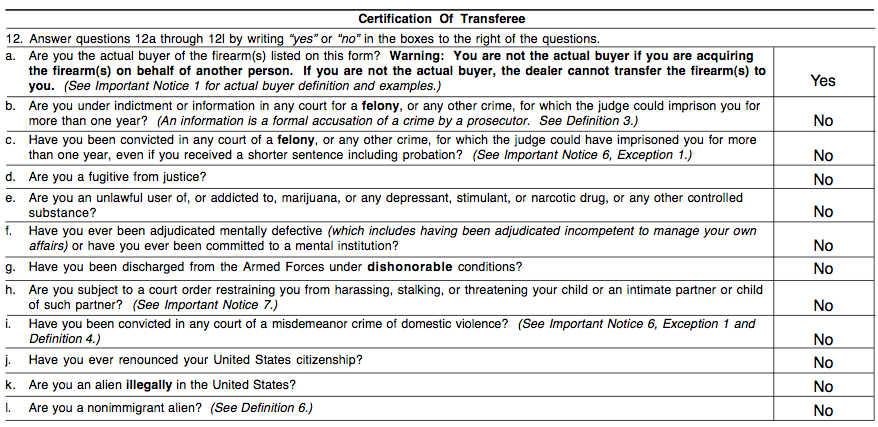The above was posted on Facebook, by a group I usually agree with. They clearly thought that today's Supreme Court decision prevented someone from buying a gun with the intent of giving it as a gift to another person who may legally own firearms.
 This case did not address that issue. The ATF clearly states that if you buy and gun with the intention of gifting it to someone, that you are the "actual purchaser" of the firearm and that both the purchase and the gifting are legal (assuming the person both you and the person gift it to are not prohibited).
This case did not address that issue. The ATF clearly states that if you buy and gun with the intention of gifting it to someone, that you are the "actual purchaser" of the firearm and that both the purchase and the gifting are legal (assuming the person both you and the person gift it to are not prohibited).USA Today started their article with this line: "The Supreme Court dealt a rare blow to the gun lobby Monday by ruling that purchasers must report when they are buying firearms for other people." This is also untrue. This cases was of minor interest to gun rights groups - if they were interested at all.
In the case before the court, a police officer purchased a Glock using his law enforcement discount, for a friend, whom he immediately sold it to, conducting the transfer through another dealer. The rub here is that the officer who bought the gun stated that he was not buying the gun for another person.
Here's an image of the questions you have to answer to buy a firearm in the US, with the answers that permit you to actually buy the gun:
Note question 12a - the first one. It clearly states that in order to buy the gun you must not be purchasing it "on behalf of another person". Doing this means you are not the actual purchaser. The police officer wanted a pass on his giving a dishonest answer because he was acting on behalf of someone who could have bought the gun legally.
However, if the court had ruled that this was legal, a lot of straw purchase cases would not stand up in court. The person making the purchase would simply claim they didn't know that the person they resold to was prohibited. If that could not be disproved - there goes the case! It's easy to see why the law is written the way it is and why the high court ruled as it did.
This case is not a setback for gun rights. It doesn't affect gifting or the ability to conduct private in state sales in accordance with whatever law is in place within that state. It doesn't even address the issue of the constitutionality of background checks. It's a narrow case about narrow issues.
Important note: You must always comply with your state's law as well as federal law. Many states have additional requirements affecting these issues.

No comments:
Post a Comment